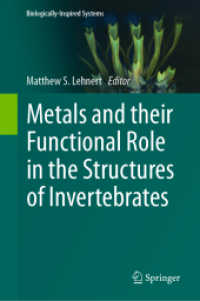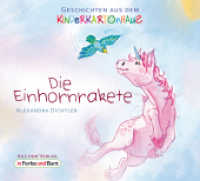Full Description
Integrating aspects of Chinese culture with modern theories of language, this book puts forward a new approach to ecolinguistics: harmonious discourse analysis (HDA).
Supplementing existing approaches to eco-discourse analysis, HDA aims to diversify the landscape of ecolinguistic studies by promoting cultural inclusiveness and ecological education. While enabling readers to embrace alternative approaches and discourses in the analysis of a variety of Chinese-context-based examples, itequally facilitates understanding of the tradition and development of ecological ideas in China and expands the sphere to examine East-West dialogues of ecolinguistics.
Divided into two parts, the book first introduces the theory of HDA before moving on to an investigation of its application. This includes the analysis of nature poems and media discourses, an exploration of China's ecological development, a consideration of ecological education, and examples of the ecological wisdom and practices of ethnic minorities in China.
Contents
List of Figures
List of Tables
Preface
Acknowledgments
List of Abbreviations
Introduction
Part I: Theory
1. The Diversity of Approaches in Ecolinguistic Studies and Ecosophy
2. Theoretical Basis: Systemic Functional Linguistics
3. The Conception of Harmony
4. Research Assumption and Principles
5. Analytical Framework
Part II: Application
6. Nature Poetry
7. Media Discourses
8. Ecological Education
9. Ecological Wisdom and the Practices of Chinese Ethnic Minorities
Conclusion
Appendix
References
Index








